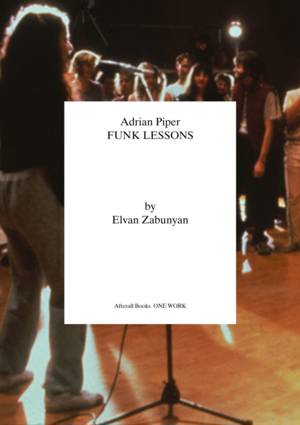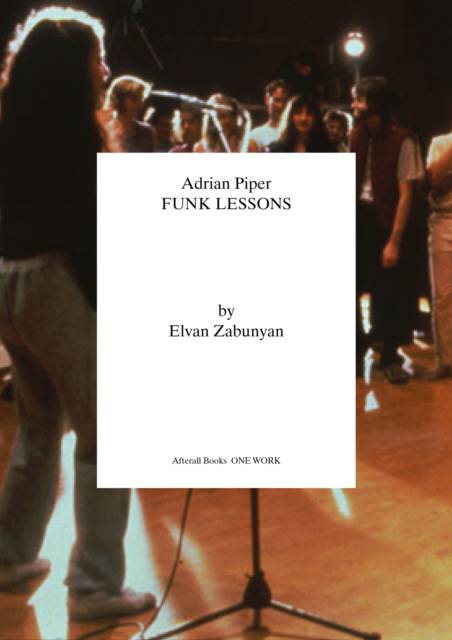
- Retrait gratuit dans votre magasin Club
- 7.000.000 titres dans notre catalogue
- Payer en toute sécurité
- Toujours un magasin près de chez vous
- Retrait gratuit dans votre magasin Club
- 7.000.0000 titres dans notre catalogue
- Payer en toute sécurité
- Toujours un magasin près de chez vous
25,45 €
+ 50 points
Description
On Adrian Piper's radical pedagogy of transgression and the importance of soul and funk music in the African American struggle for emancipation. From 1982 to 1984, Adrian Piper staged a number of audience-interactive performances in universities or museum settings, under the title Funk Lessons. Using the didactic format of a "lesson" (including characteristic paraphernalia such as blackboards), Piper endeavored to teach the basic moves of funk dance to a mostly white, college-educated audience. Filmed by Sam Samore in 1983, one of the piece's more successful iterations lives on as a videotape, and in Piper's own written reflections, "Notes on Funk." Considering Piper's broader conceptual-political practice and her long-standing interest in dance, Elvan Zabunyan reveals how Funk Lessons troubles conceptions of knowledge and pedagogy rooted in white, "high culture" through their subtle mimetic subversion. The study foregrounds the key political significance of funk and soul music as the soundtrack of the civil rights movement. By teaching to transgress essentialist categories of race and class through knowledge embodied in dance and music, Funk Lessons opens up new paths for sensory identification and self-transcendence.
Spécifications
Parties prenantes
- Auteur(s) :
- Editeur:
Contenu
- Nombre de pages :
- 96
- Langue:
- Anglais
- Collection :
Caractéristiques
- EAN:
- 9781846382642
- Date de parution :
- 23-07-24
- Format:
- Livre broché
- Format numérique:
- Trade paperback (VS)
- Dimensions :
- 152 mm x 216 mm
- Poids :
- 367 g

Les avis
Nous publions uniquement les avis qui respectent les conditions requises. Consultez nos conditions pour les avis.






